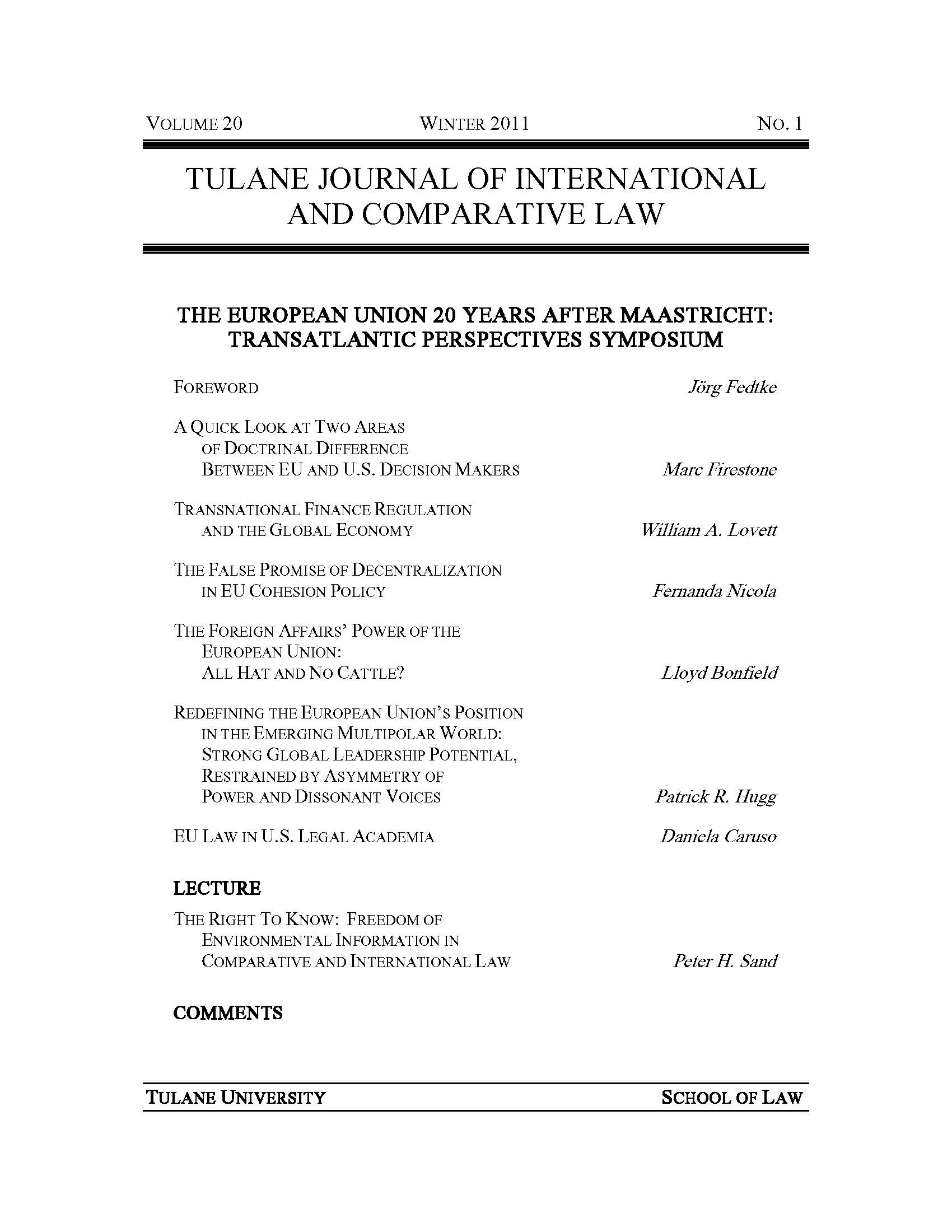The False Promise of Decentralization in EU Cohesion Policy
Abstract
The European Union (EU) is “going local” by taking decentralization of power seriously in
order to create greater effectiveness for European law and policy, especially with respect to its
economic development or cohesion policy strategies. In this vein, the Treaty of Lisbon has
modified the subsidiarity principle now including a “regional and local” dimension while offering
new legal and political safeguards to protect subnational actors from the reach of EU law.
However, in EU cohesion policy, cities, regions, and Länder in the different Member States are
‘lumped together’ into a third-level Europe that does not differentiate among these subnational
actors. In addition, despite the attempt to connect Europe to its subnational level to enhance local
autonomy and territorial cohesion, European courts do not always recognize the local level as
independent from their Member State. As a result, EU cohesion policies attempting to narrow the
welfare imbalances among European regions are not territorially attuned, flexible enough, or
equipped with accountability mechanisms capable to address the development problems they are
designed to solve.
Scholars have shed light on the invisibility of local actors by proposing to strengthen their
“input legitimacy” (process and participation) through greater representation before EU decisionmaking
processes or European courts. By focusing on EU-wide procedures instead of
understanding how different legal and geographical factors characterize each territory, EU scholars
have refrained from addressing whether increasing decentralization is accomplishing the desired
development goals and improving the “output legitimacy” (effectiveness of regulation) of EU
institutions.1 This Article instead offers a “thick” description of EU cohesion policies aimed at
creating economic development and territorial cohesion by disbursing EU funding to the European
peripheries. Rather than assessing if these policies enhance local autonomy and decentralization
through EU-local cooperation, I demonstrate that often they foster centralization and produce new
conflicts among heterogeneous subnational actors, Member States, and the EU. Through a textured
account of local power in Germany, Greece, and Italy, I suggest that a more contextualized and
needs-based approach to cohesion policies, which acknowledges territorial and socio-economic
disparities in each region, would anticipate and evade the shortcomings of current EU cohesion
policy. This Article departs from notions of local autonomy and decentralization of power to
improve the “input legitimacy” of EU institutions by suggesting that the findings on cohesion
policy—the need to pay greater attention to local heterogeneity and to create accountability
mechanisms to monitor disbursement policies—are important lessons about local governance in
the EU that should “travel” to other regulatory areas.
